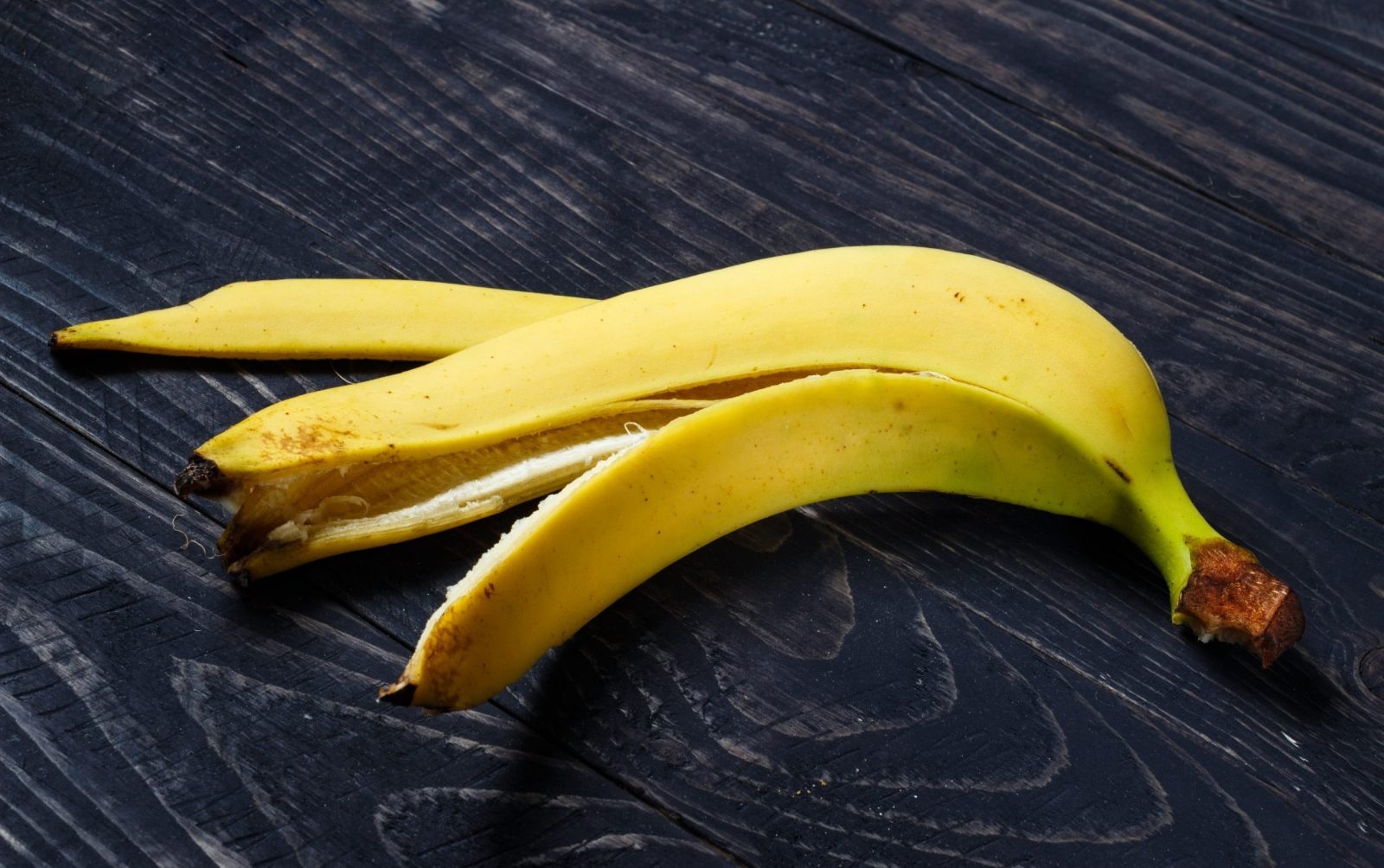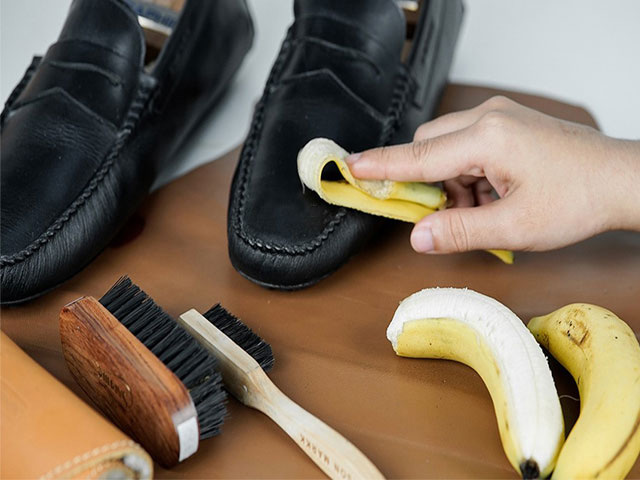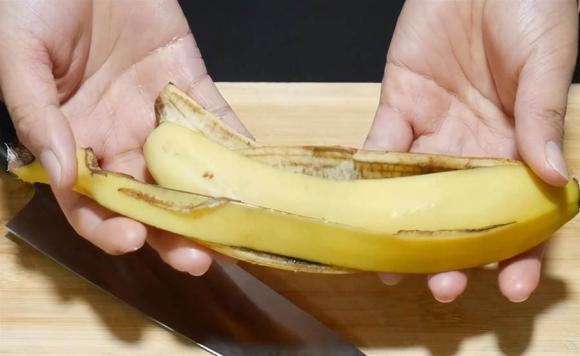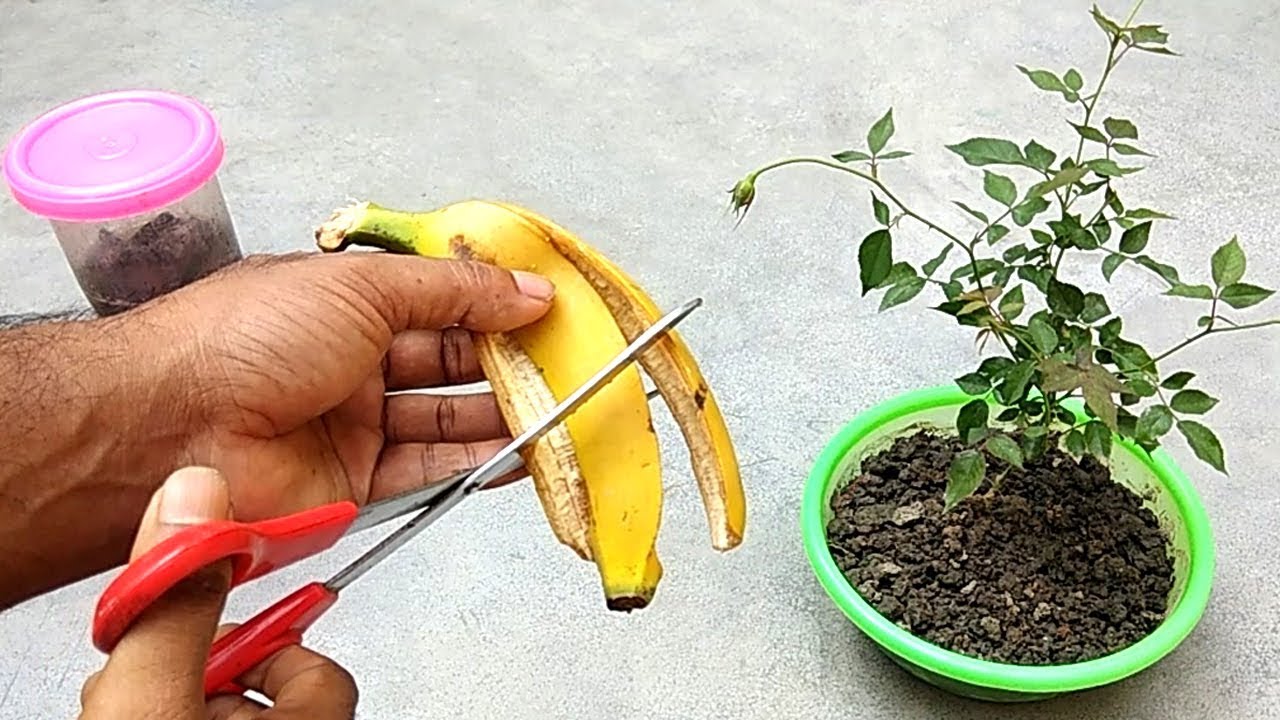In our daily lives, there are numerous seemingly insignificant things that we tend to discard. However, this doesn’t have to be the case if we know how to utilize them properly. The following is an example of this, and it involves the peels of a fruit that many families consume daily – bananas.
Listed below are five surprising uses for banana peels, most of which involve cleaning and housekeeping. And the best part is that they are all easy and safe to implement in our daily lives.

Illustrative image
1. Leather Shoe Polisher
The first surprising use for banana peels is to polish leather shoes. Leather shoes are a popular choice for many, especially men. While they usually look sleek and shiny, they can quickly show their flaws once they get dirty.
In this situation, most people would opt to take their shoes to professional cleaning or repair services. However, banana peels offer a simple and effective solution.
Simply cut a small piece of the banana peel and use the inside of the peel to rub onto the surface of the leather shoe. Banana peels contain natural cleaning agents like pectin, which can effectively remove dirt and stains from the shoe’s surface. Additionally, it will also make the leather softer and shinier.

Illustrative image
After using the banana peel, use a dry paper towel to wipe the shoe again. This ensures that any residue, including that from the banana peel, is completely removed.
2. Kitchen and Furniture Cleaner
Apart from leather shoes, banana peels can also be used to clean kitchen surfaces and furniture. The method is similar to that used for leather shoes: simply rub the inside of the banana peel onto the surfaces you want to clean. For stubborn grease stains on kitchen surfaces, rub the area several times to ensure the stain is removed.
After using the banana peel, use a paper towel or a damp cloth to wipe the surface again. This practice can be incorporated into your weekly cleaning routine, especially in the kitchen. It helps reduce the use of chemical cleaning agents, which often have unpleasant odors and can be harmful to your health.

Illustrative image
3. Odor Neutralizer
In addition to cleaning, banana peels can also be used to neutralize odors. A common example is using them to eliminate odors in cars, especially in the leather seats and upholstery. Simply place banana peels, preferably whole ones, inside the car, focusing on the areas where odors are most prominent. Leave them there for a few hours or, ideally, overnight.
Banana peels contain not only natural cleaning agents like pectin but also a certain amount of acid and antioxidants. These chemicals react with unpleasant odors or the smell of new car interiors. So, when you remove the banana peels, those odors will be gone as well.

Illustrative image
For a complete odor removal, you can leave the banana peels in the car for a few days if possible. However, remember to replace the old peels with fresh ones daily. Otherwise, this method may backfire as banana peels left for too long will start to rot and develop mold.
4. Plant Fertilizer
Not many people know that banana peels can be used as a natural fertilizer for plants and flowers. Simply tear or grind up the banana peels, place them in a large bowl, add a little water, and cover the bowl with a lid or plastic wrap. This process will help the banana peels ferment. After 3-4 days, filter the water and use it to water your plants and flowers.
Don’t discard the remaining banana peel residue; instead, use it as compost for your indoor plants. It will not only provide potassium and phosphorus to your plants but also help repel pests and other insects.

Illustrative image
5. Fruit Ripener
The fifth use for banana peels is unrelated to cleaning or housekeeping, but it’s still very useful when it comes to the fruits in your refrigerator. Banana peels, when placed next to certain types of fruits, can help speed up their ripening process.
This is because banana peels contain ethylene, a natural ripening agent. Simply place the banana peels next to the fruit you want to ripen, or tie the peels together with the fruit in a bag. After two to three days, fruits like mangoes, plums, or kiwis will be softened and ready to eat.
According to “Life and Law”






























